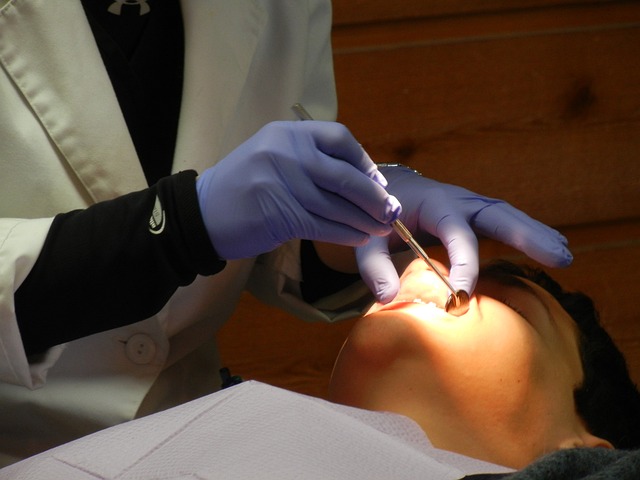How Long Does a Root Canal Last?

A root canal is a dental procedure that can save a tooth and relieve excruciating pain. But how long can you expect the benefits of this treatment to last? Discover their longevity and shed light on why this dental procedure should be seen as a beacon of hope.
The Procedure
They are technically known as endodontic therapy, which is performed by dental professionals to treat a tooth with a damaged or infected pulp (the innermost part of the tooth). Contrary to popular belief, a root canal is not a painful experience but a remedy for pain caused by the infection itself.
Here’s a simplified breakdown of the procedure:
1. Diagnosis: Your dentist will examine your tooth and take X-rays to assess the extent of the damage.
2. Anesthesia: To ensure a painless experience, your dentist will numb the affected area using local anaesthesia.
3. Access Opening: A small access hole is drilled into the tooth to reach the pulp chamber.
4. Pulp Removal: The infected or damaged pulp is carefully removed, and the canals are cleaned and shaped to prepare them for filling.
5. Filling: The cleaned canals are filled with a biocompatible material called gutta-percha to seal them.
6. Restoration: In many cases, a crown is placed over the tooth to restore its strength and functionality.
The Lifespan
So, how long does a root canal last? The answer may surprise you—often, a well-performed one can last a lifetime. However, several factors can influence the longevity of the treatment.
The skills and expertise play a significant role in the success of this procedure. The location of the tooth – Teeth at the front of the mouth tend to have a simpler system and are easier to treat successfully. Molars, with their multiple roots and canals, may pose more challenges.
Other important factors include your commitment to good oral hygiene. Regular brushing, flossing, and routine dental check-ups can help prevent reinfection. As well as follow-up care, it’s important to follow the dentist’s instructions carefully. This includes attending follow-up appointments and addressing any issues promptly.
Benefits of a Long-Lasting Root Canal
Understanding that they can last for many years, and even a lifetime, can provide a significant sense of relief. Let’s explore some of the benefits of this long-lasting dental treatment:
Preservation of Natural Teeth: The primary goal of any dental treatment is to preserve your natural teeth whenever possible. A successful procedure allows you to keep your tooth, maintain your smile, and avoid the need for more invasive procedures like tooth extraction and dental implants.
Pain Relief: One of the most immediate and profound benefits is the relief from pain and discomfort caused by the infection. A pain-free smile is invaluable!
Functional Restoration: With a crown placed over the treated tooth, you can regain full functionality. This means you can chew, speak, and smile with confidence.
Cost-Effective: In the long run, it can be more cost-effective than extracting and replacing a tooth with a bridge or implant. It’s a smart investment in your oral health.
Aesthetically Pleasing: Maintaining your natural teeth is also aesthetically pleasing. No artificial tooth can perfectly mimic the appearance and texture of your real teeth.
How to Prolong the Life of Your Root Canal
Here are some tips to help you maintain the health of your treated tooth:
1. Practice Excellent Oral Hygiene: Brush your teeth at least twice a day, floss daily, and use an antiseptic mouthwash to keep your mouth clean and free of harmful bacteria.
2. Regular Dental Check-Ups: Schedule regular dental check-ups, typically every six months, to monitor the condition of your treated tooth and catch any issues early.
3. Protect Your Teeth: If you engage in sports or activities that could lead to dental injuries, wear a mouthguard. Additionally, if you grind your teeth at night, consider using a nightguard to protect your tooth and the crown.
4. Maintain a Healthy Diet: A balanced diet with minimal sugary and acidic foods can help prevent tooth decay and infection.
5. Avoid Bad Habits: Stay away from habits like smoking and excessive alcohol consumption, as they can negatively impact your oral health.
6. Manage Health Conditions: If you have underlying health conditions or take medications that affect your oral health, discuss them with your dentist to ensure proper care.
7. Stay Informed: Keep yourself informed about the latest dental care techniques and recommendations, so you can make educated decisions about your oral health.
A root canal is a shining example of a procedure that can significantly improve your quality of life. Understanding its potential for longevity and the positive impact it can have on your oral health should put your mind at ease.
By following a regimen of good oral hygiene, regular check-ups, and taking precautions to protect your treated tooth, you can ensure that your smile remains healthy, pain-free, and beautiful for years to come. For further dental support please get in touch with us today!
